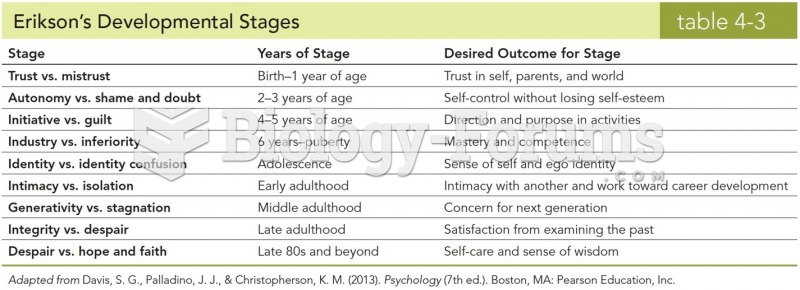|
|
|
Stroke kills people from all ethnic backgrounds, but the people at highest risk for fatal strokes are: black men, black women, Asian men, white men, and white women.
In the United States, congenital cytomegalovirus causes one child to become disabled almost every hour. CMV is the leading preventable viral cause of development disability in newborns. These disabilities include hearing or vision loss, and cerebral palsy.
Street names for barbiturates include reds, red devils, yellow jackets, blue heavens, Christmas trees, and rainbows. They are commonly referred to as downers.
The eye muscles are the most active muscles in the whole body. The external muscles that move the eyes are the strongest muscles in the human body for the job they have to do. They are 100 times more powerful than they need to be.
Common abbreviations that cause medication errors include U (unit), mg (milligram), QD (every day), SC (subcutaneous), TIW (three times per week), D/C (discharge or discontinue), HS (at bedtime or "hours of sleep"), cc (cubic centimeters), and AU (each ear).
 A complete cranium of Au. Afarensis from Hadar, Ethiopia, shows a prognathic face and a small brainc
A complete cranium of Au. Afarensis from Hadar, Ethiopia, shows a prognathic face and a small brainc
 The course of EEG stages during a typical night’s sleep and the relation of emergent stage 1 EEG ...
The course of EEG stages during a typical night’s sleep and the relation of emergent stage 1 EEG ...
 Apply direct pressure to points on low back. Press into paraspinal muscles from the side. Move spot ...
Apply direct pressure to points on low back. Press into paraspinal muscles from the side. Move spot ...




